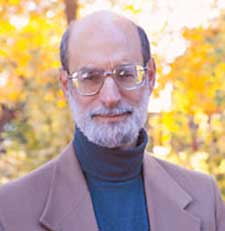Memorial of Michael Kammen by James Hijiya

Photograph courtesy of Cornell University
Michael Kammen served on the Council of the Omohundro Institute from 1978 to 1981.
Memorial of Michael Kammen
In the early 1970s Michael Kammen’s graduate students at Cornell used to talk about his elves. These were the clever, industrious little creatures who helped him do the research and writing for his books and articles. We grad students had to postulate the elves’ existence because, otherwise, we could not explain how one man could produce so much work of such high quality.
When I arrived in Ithaca in 1971, Michael had published several books on American colonial history but already was moving beyond the confines of that or any other period. He took on two new grad students that year, and both of us ended up writing dissertations focused mainly on the nineteenth century. Michael still taught colonial history, supervised dissertations in it, wrote books about it, and presided over an informal seminar adroitly named LECH: the Luncheon of English Colonial Historians. Nevertheless, he was becoming post-colonial. He helped create the field of “memory studies,” examining not so much what happened (the Revolution, the Constitution) as what people remembered about what happened. As I observed Michael’s changes in field, I figured he must have gotten himself some new elves with different areas of expertise. In recent years Michael published a couple books on the history of art, plus several that don’t fall into any single category, except perhaps one as capacious as the history of American culture.
While doing all this, Michael somehow found time for activities having little to do with history. Each Thanksgiving he would invite guests, always including at least a grad student or two, for a dinner prepared by his wife, Carol, a formidable chef as well as a notable historian in her own right. After eating, we would watch football on TV, sometimes smoke cigars, and always tell stories.
Michael continued helping his students after they left Ithaca. His older students remember postcards sent from all over the world, informing them of a book Michael had seen reviewed or of a museum exhibit he had examined—something related to their current research. In recent years e-mails replaced postcards, but the message was still the same. The man was still the same.
Michael’s curiosity and kindness were so limitless that he assisted his former students even when their work had nothing to do with his own. For the last decade, most of my writing has consisted of memoirs, not history, but Michael critiqued everything, encouraged me, and even helped me find a journal to publish a personal essay.
One night when I lived in Ithaca, the power went out, the city went black. We grad students got out candles, guitars, and jugs of wine, and we celebrated our unexpected vacation. Later we heard a rumor that Michael had driven all over town, looking for a place with its lights still on, so he could continue working. I never found out whether that story was true, but it was the kind of story that people who knew Michael could readily believe. Maybe the elves never existed after all.
Michael Kammen was born on Oct. 25, 1936. He died on Nov. 29, 2013. In between, he vigorously, thoughtfully, generously, usefully, and happily lived.
James A. Hijiya
University of Massachusetts Dartmouth
